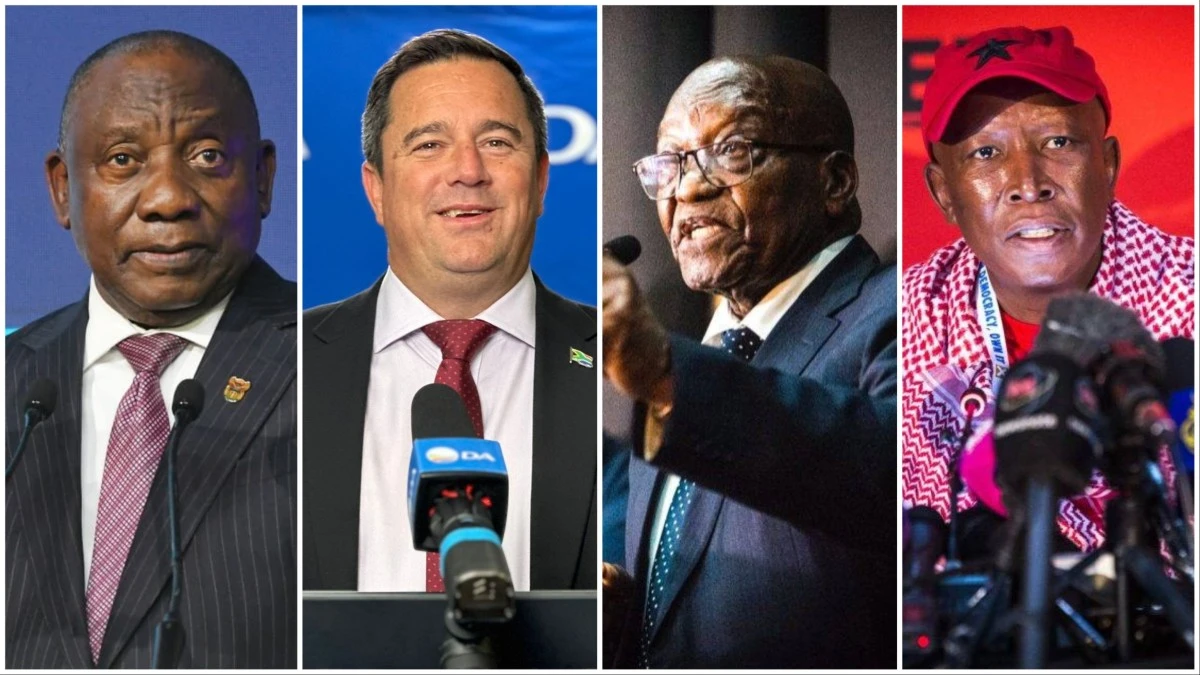The African National Congress (ANC), once the unchallenged force in South African politics, has seen its dominance wane, securing just over 40% in the election, and now sees coalition partners.
ANC Loses Its “Abused” Majority
This electoral outcome has ushered in an era of unprecedented coalition talks, with the ANC losing its parliamentary majority for the first time since the end of apartheid.
The election results reflect a populace disillusioned with persistent issues such as poverty, economic stagnation, unemployment, and infrastructural decay. The ANC’s decline has been attributed to a combination of these systemic failures and a loss of public trust.
ALSO READ: Fikile Mbalula Shuts Down Calls for Cyril Ramaphosa to Step Down Amid Coalition Talks
MK Beats Expectations
Amidst this backdrop, the former president Jacob Zuma’s party, MK, has emerged as a significant player, potentially altering the political landscape. With approximately 15% of the national vote and a strong showing in KwaZulu Natal, MK’s rise comes at the expense of the ANC’s traditional support base.
The principal opposition, the Democratic Alliance (DA), maintains about a fifth of the electorate’s support but has struggled to extend its appeal beyond its core demographic. Meanwhile, the Economic Freedom Fighters (EFF) and MK offer contrasting populist narratives that have yet to resonate with the majority of South Africans.
As the dust settles, the ANC, under President Cyril Ramaphosa’s leadership, is poised to continue governing, albeit in a weakened state. The party’s path forward will likely involve forming coalitions with smaller parties, a political manoeuvre necessitated by the proportional representation system.
ALSO READ: ‘What in the Zanu PF?’: IEC Website Crash Sparks Rigging Rumours in South Africa
The Coalition Headache ANC Faces

The coalition dynamics are complex and fluid, with multiple potential outcomes. The ANC could seek an alliance with the DA, creating a centrist bloc to counterbalance the more radical propositions of the EFF and MK. Alternatively, pragmatic coalitions with smaller parties could provide the ANC with the numbers needed to form a government, though this would require significant concessions and a shared governance approach.
The implications of these coalitions are profound. They signal a shift towards a more pluralistic and competitive political environment, which could foster greater accountability and responsiveness from elected officials. However, the uncertainty of coalition politics also brings the risk of instability and policy paralysis.
As South Africa navigates these uncharted waters, the decisions made in the coming days will shape the nation’s future. The electorate’s call for change is clear, and how the political class responds will determine whether South Africa can overcome its challenges and fulfil the promise of its young democracy.
In conclusion, the 2024 elections have set the stage for a transformative period in South African politics. The ANC’s era of unchallenged rule has ended, and the country is exploring new political formations. The success of these coalitions will depend on their ability to address the pressing concerns of the South African people and to chart a course towards a more prosperous and equitable society.
